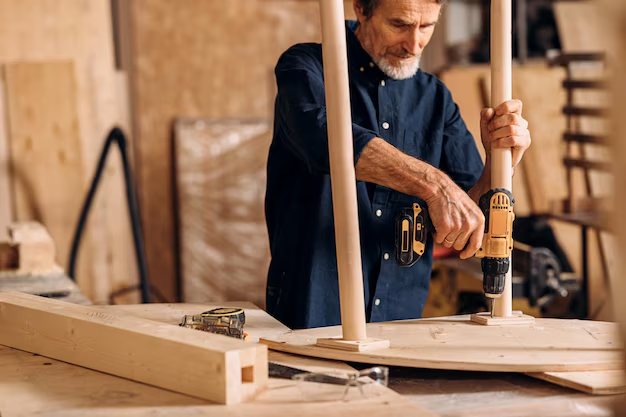As consumer preferences shift toward eco-conscious living, sustainability is no longer a bonus; it is a necessity. It’s a business necessity. For cabinet contractors, embracing sustainable practices isn’t just about protecting the planet. It’s also about staying competitive, reducing costs, and appealing to a growing base of environmentally aware homeowners.
In today’s remodeling and home-building market, adopting green practices offers cabinet professionals a significant advantage. Here’s why sustainable practices matter more than ever in the cabinet contracting industry.
Growing Consumer Demand for Eco-Friendly Cabinets
Today’s consumers are informed, concerned, and ready to invest in sustainability. A recent 2024 survey by Houzz revealed that 74% of homeowners prefer eco-friendly materials when remodeling their kitchens, including cabinet installations. Buyers are actively seeking contractors who offer responsibly sourced wood, low-VOC finishes, and recyclable components.
This demand is being driven in part by health considerations. Homeowners want assurance that the cabinets in their homes won’t emit harmful chemicals, such as formaldehyde or other volatile organic compounds (VOCs), which are commonly found in traditional finishes and adhesives.
Cabinet contractors who incorporate green materials and processes are more likely to win projects with this fast-growing demographic.
Lower Operating Costs Through Efficient Practices
Sustainability doesn’t have to be expensive. Green practices often lead to reduced long-term operational costs for contractors.
For example:
- Optimizing raw material usage can reduce waste by up to 25%, resulting in lower purchasing costs.
- Energy-efficient workshops, equipped with LED lighting and energy-smart equipment, can reduce power bills by 30% or more.
- Recycling sawdust and scrap wood can create secondary products, such as particle board, or even serve as a biofuel.
These savings add up quickly, allowing cabinet contractors to increase their profit margins while also marketing their sustainability story to customers.
Waste Reduction Is a Game Changer
The construction and remodeling industries account for nearly 40% of landfill waste in the United States, according to the EPA. Cabinetry, often made with hardwoods and MDF, contributes significantly to this.
By incorporating sustainable practices like:
- On-site waste sorting
- Material recycling partnerships
- Using pre-cut stock sizes to reduce offcuts
contractors can significantly reduce the waste they generate. Not only does this prevent valuable materials from being sent to the landfill, but it also demonstrates a contractor’s commitment to responsible building practices.
Supporting Responsible Forestry
The source of the wood used in cabinetry plays a critical role in sustainability. Cabinet contractors who use FSC-certified lumber (Forest Stewardship Council) support responsible forestry practices that protect ecosystems and prevent illegal logging.
According to the FSC, each acre of responsibly managed forest can sequester up to 2.5 tons of carbon dioxide annually. By choosing certified lumber, contractors help curb deforestation and reduce carbon emissions.
This move can be a powerful selling point for eco-conscious clients, particularly those seeking LEED certification or other green building standards.
Competitive Edge in the Market
Green building is more than a trend. It’s an evolution. Contractors who demonstrate a commitment to sustainability have a clear edge in today’s competitive market. Many states and municipalities now offer tax incentives and rebates for sustainable construction and remodeling practices.
Moreover, by promoting sustainable values, cabinet contractors can:
- Stand out on lead-generation platforms
- Earn referrals from eco-conscious homeowners
- Position themselves as leaders in the green building community
With Gen Z and Millennial homeowners prioritizing sustainability in home improvement decisions, going green is essential for long-term success.
Regulatory Compliance and Future-Proofing
Environmental regulations are becoming increasingly stringent across the country. In California, for example, the CARB Phase 2 regulations (California Air Resources Board) set strict limits on formaldehyde emissions in wood products, a standard many other states are beginning to adopt.
Cabinet contractors who fail to comply risk fines, project delays, and damage to their reputation. Adopting sustainable practices now helps businesses:
- Stay ahead of evolving regulations
- Avoid costly retrofits later
- Protect their brand from greenwashing backlash
Future-proofing your operation by aligning with environmental standards is a smart business move.
Enhancing Brand Image and Client Trust
Transparency and integrity are key components of modern marketing. By showcasing eco-friendly certifications, material sourcing info, and waste-reduction stats, cabinet contractors can build trust with clients.
Sustainable brands enjoy 88% stronger customer loyalty, according to a 2023 Nielsen report. When customers believe a contractor shares their values, they’re more likely to refer, return, and leave positive reviews.
Contractors can amplify their impact by:
- Sharing sustainability practices on their websites
- Including green badges in their portfolios
- Offering eco-options as part of their initial design consults
Conclusion: Sustainability Is the Future for Cabinet Contractors
Adopting sustainable practices is no longer optional for cabinet contractors. It’s essential. From reducing operational costs to attracting eco-conscious clients, sustainability delivers benefits that are both business and environmentally beneficial.
As the remodeling and construction industry continues to evolve, those who embrace green practices will not only do right by the planet, but they’ll also position themselves as trusted leaders in a highly competitive field.
By focusing on waste reduction, responsible sourcing, energy efficiency, and compliance, cabinet contractors in Florida can build better, smarter, and greener. Now is the time to invest in a sustainable future.
